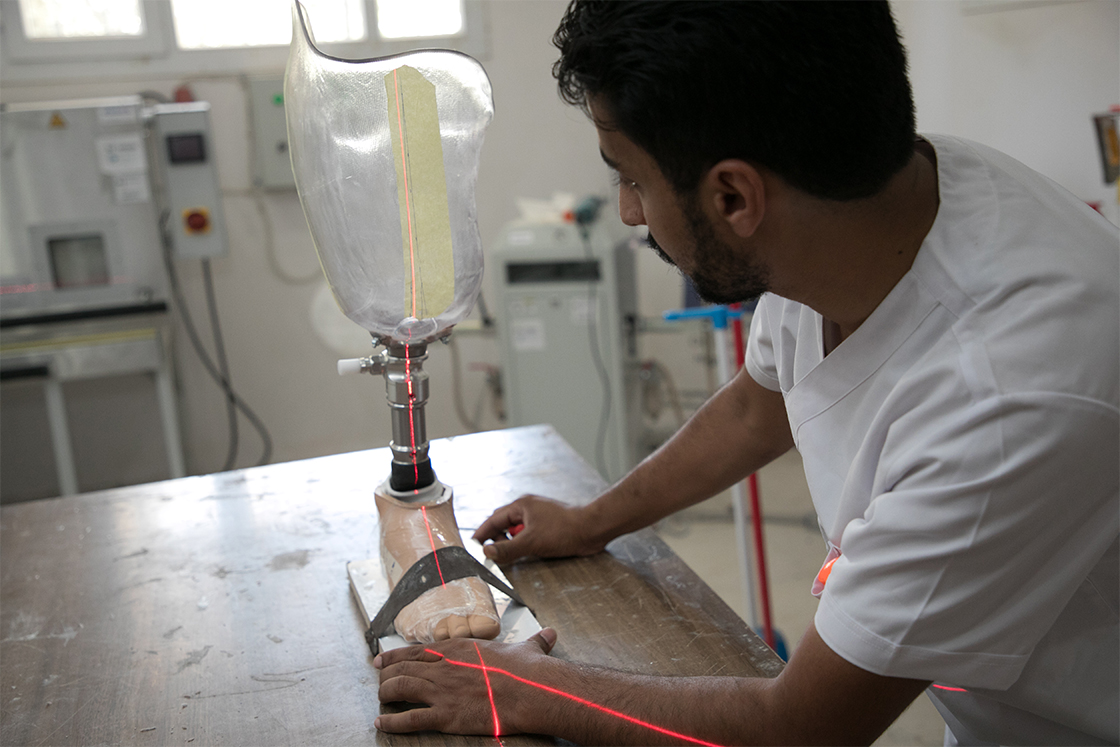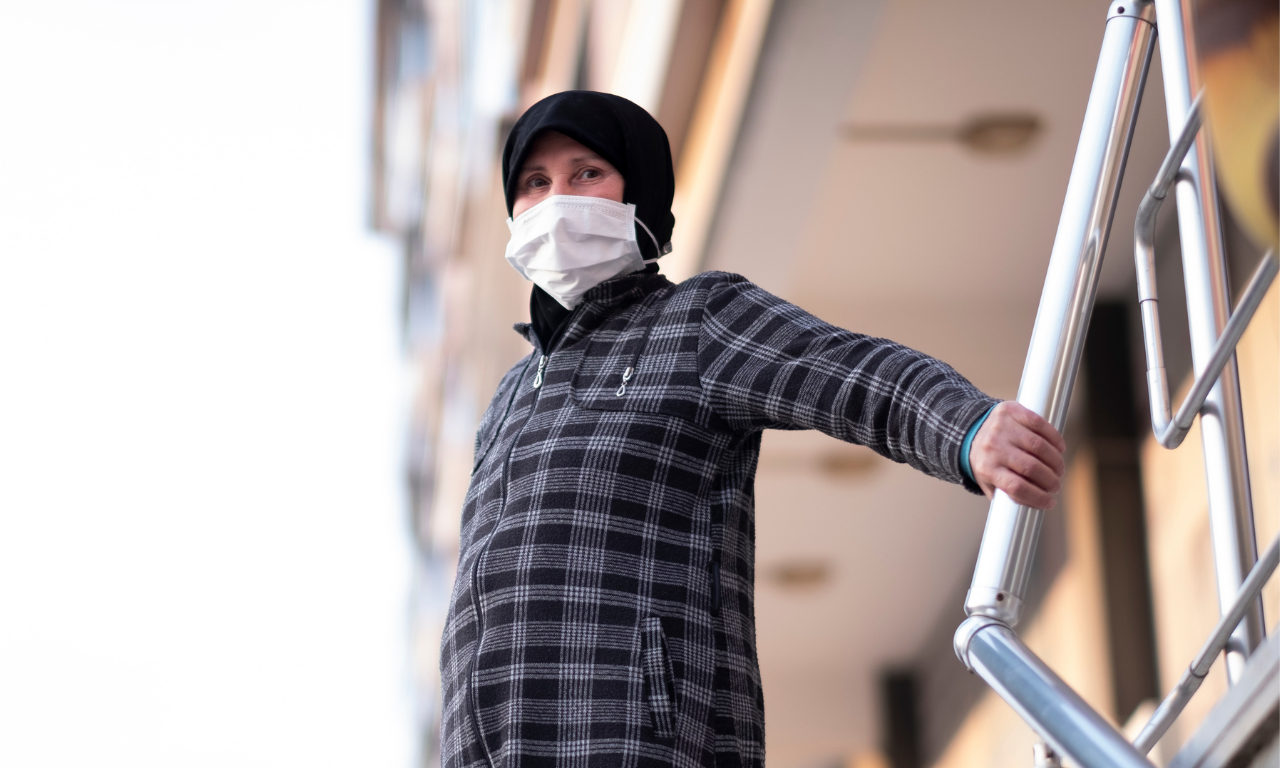Recovering from a life threatening illness or accident takes time and effort. It often involves going to physical rehabilitation which can be physically and mentally challenging. It requires huge amounts of resilience and hard work from the patient, and even the most dedicated people can still experience setbacks in their recovery.
Luckily, Dalal has plenty of experience of resilience and hard work.
Dalal is a 60-year-old Syrian woman living in Turkey. She moved to Turkey in 2015, along with her husband, son, daughter-in-law and grandchildren, to escape the conflict in Syria.
In 2020, Dalal had a stroke that completely changed her life. The incident affected the whole right side of her body, and she spent several days in intensive care at a local hospital.
“My life after the stroke became very difficult and I was very stressed. I was not able to talk. I did not have the energy to talk. I could not eat and dress myself. I could not meet any of my needs myself," says Dalal.
Once Dalal returned home she quickly found that the stroke affected every part of her life. She had difficulty speaking and eating because her facial muscles had been affected, and she had difficulties washing and dressing because her mobility had been affected. As a result, she relied heavily on the support of family members for day to day activities.
Soon after, Dalal heard about a rehabilitation center near her home specifically for Syrian refugees, and decided to visit the center in the hopes of taking the first steps on the long road to physical recovery.
The center which operates through a partnership between Relief International and the Association of Assistance Solidarity and Support for Refugees and Asylum Seekers (MSYD-ASRA), and is funded by European Union Humanitarian Aid, ensures refugees have access to physical rehabilitation services in Turkey. In 2021 1,972 people were treated at the center.
By the time she visited the center, it had been two weeks since Dalal had suffered the stroke. She was assessed by the center staff and was recommended physical rehabilitation sessions that could help her to regain her mobility and functional independence.
Dalal started straightaway, taking part in exercises which included passive range of motion exercises, isometric exercises for strengthening muscles, and active assistive exercises.
However, after two months Dalal stopped attending the sessions. “I couldn’t understand what happened to me after having the stroke. I wanted to stay away from people because I thought I wouldn’t recover. I didn’t want to continue the treatment because I didn’t feel ready.”
Before stopping the sessions altogether though, Dalal worked with the center’s physiotherapist to find various exercises she could practice at home.
While she stopped attending sessions at the center, Dalal diligently practiced her exercises at home, getting stronger and stronger every day. As she got stronger, she got more confident, and this confidence was the key to her eventually returning to the rehabilitation center for more support and training.
After returning to her sessions, she worked with the rehabilitation team to create an updated intervention plan with physical rehabilitation exercises that she could do both in-center and at home. Her husband was even provided training so that he could support her in doing her exercises at home.
“I couldn’t feel my feet at first, but as I did my exercises, [it changed and] I felt my feet,” says Dalal.
“I continued doing the exercises because I believed I would heal. As I did my exercises right, my belief that I could recover increased."
As she got stronger, the sessions got more sophisticated, working on improving balance, standing, taking steps, and facial exercises. “I am very satisfied with the services at the center because I am getting better”.
Through her hard work and commitment, Dalal is now able to walk and talk without any support.
“We should not sleep sad. Rather, we should always keep hope alive. That is my main motivation for coping with all difficulties in life!”

Relief International in Turkey
RI has worked in Turkey since 2013, providing health services and livelihood opportunities to the large Syrian refugee population in the country, as well as vulnerable members of the communities that host them.



